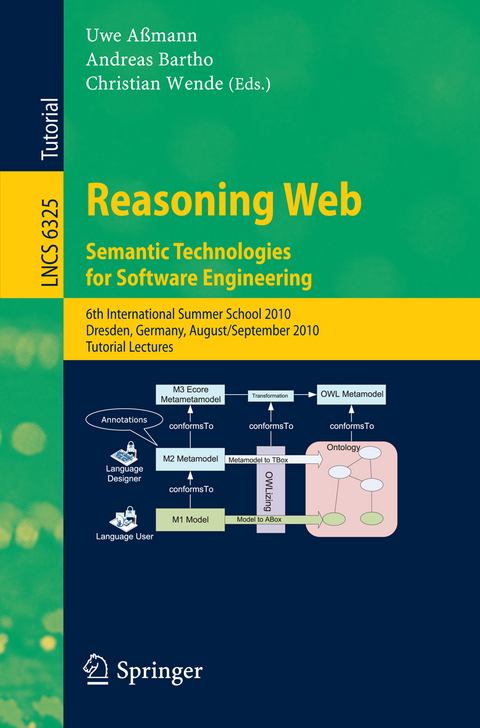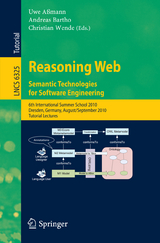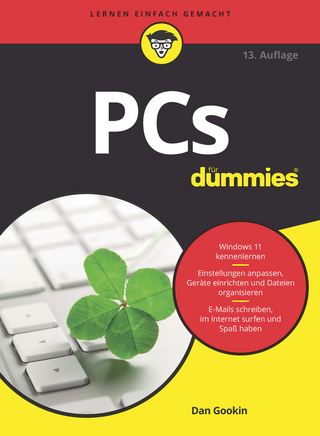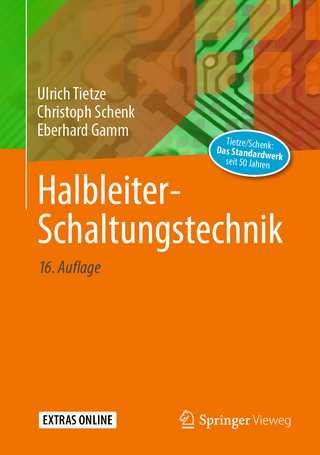Reasoning Web. Semantic Technologies for Software Engineering
6th International Summer School 2010, Dresden, Germany, August 30 - September 3, 2010. Tutorial Lectures
Seiten
2010
|
2010
Springer Berlin (Verlag)
978-3-642-15542-0 (ISBN)
Springer Berlin (Verlag)
978-3-642-15542-0 (ISBN)
This book provides a coherent introduction to semantic web methods and research issues with a particular emphasis on reasoning. It is based on a collection of six thoroughly revised tutorial papers culled from lectures given by leading researchers.
Welcome to the proceedings of Reasoning Web 2010 which was held in Dresden. Reasoning Web is a summer school series on theoretical foundations,contemporary approaches, and practical solutions for reasoning in a Web of Semantics. It has est- lished itself as a meeting point for experts from research institutes and industry, as well as students undertakingtheir PhDs in related ?elds. This volume contains tutorial notes of the sixth school in the series, held from August 30 to September 3, 2010. This year, the school focused on applications of semantic technologies in software engineeringandthereasoningtechnologiesappropriateforsuchanendeavor. Asit turns out, semantic technologies in software engineering are not so easily applied, and s- eral issues mustbe resolvedbeforesoftware modelingcanbene?t fromreasoning. First, reasoning has to be fast and scalable, since models and programscan be quite large and voluminous. SincemanyreasoninglanguagesareexponentialorNP-complete,appro- mation, incrementalization,and other optimizationtechniques are extremelyimportant. Second, software engineering needs to model software systems, in contrast to mod- ing domains of the world. Thus, the modeling techniques are prescriptive rather than descriptive [1], which in?uences the way models are reasoned about. When a software system is modeled, its behavior is prescribed by the model, that is, the truth is in the model [2]; when a domainof the world is described,its behaviorcannotbe prescribed, only described by the model ( the truth is in the world ). Therefore, reasoning has to distinguish between prescriptiveness and descriptiveness, leading to different assu- tions about the closeness or openness of the world (closed-world assumption, CWA vs. open-world assumption, OWA).
Welcome to the proceedings of Reasoning Web 2010 which was held in Dresden. Reasoning Web is a summer school series on theoretical foundations,contemporary approaches, and practical solutions for reasoning in a Web of Semantics. It has est- lished itself as a meeting point for experts from research institutes and industry, as well as students undertakingtheir PhDs in related ?elds. This volume contains tutorial notes of the sixth school in the series, held from August 30 to September 3, 2010. This year, the school focused on applications of semantic technologies in software engineeringandthereasoningtechnologiesappropriateforsuchanendeavor. Asit turns out, semantic technologies in software engineering are not so easily applied, and s- eral issues mustbe resolvedbeforesoftware modelingcanbene?t fromreasoning. First, reasoning has to be fast and scalable, since models and programscan be quite large and voluminous. SincemanyreasoninglanguagesareexponentialorNP-complete,appro- mation, incrementalization,and other optimizationtechniques are extremelyimportant. Second, software engineering needs to model software systems, in contrast to mod- ing domains of the world. Thus, the modeling techniques are prescriptive rather than descriptive [1], which in?uences the way models are reasoned about. When a software system is modeled, its behavior is prescribed by the model, that is, the truth is in the model [2]; when a domainof the world is described,its behaviorcannotbe prescribed, only described by the model ( the truth is in the world ). Therefore, reasoning has to distinguish between prescriptiveness and descriptiveness, leading to different assu- tions about the closeness or openness of the world (closed-world assumption, CWA vs. open-world assumption, OWA).
Reasoning and Explanation in and in Expressive Description Logics.- Hybrid Reasoning with Non-monotonic Rules.- Model Driven Engineering with Ontology Technologies.- Combining Ontologies with Domain Specific Languages: A Case Study from Network Configuration Software.- Bridging Query Languages in Semantic and Graph Technologies.- Semantic Business Process Engineering.
| Erscheint lt. Verlag | 25.8.2010 |
|---|---|
| Reihe/Serie | Information Systems and Applications, incl. Internet/Web, and HCI | Lecture Notes in Computer Science |
| Zusatzinfo | IX, 183 p. 52 illus. |
| Verlagsort | Berlin |
| Sprache | englisch |
| Themenwelt | Mathematik / Informatik ► Informatik ► Theorie / Studium |
| Mathematik / Informatik ► Informatik ► Web / Internet | |
| Informatik ► Weitere Themen ► Hardware | |
| Schlagworte | Business Process Engineering • context-awareness • decision support • description logic • dl reasoning • hybrid reasoning • meta data • Model-Driven Engineering • Modeling • Ontology • Query Languages • semantic search • semantic web • Software engineering • Web-Based Systems |
| ISBN-10 | 3-642-15542-1 / 3642155421 |
| ISBN-13 | 978-3-642-15542-0 / 9783642155420 |
| Zustand | Neuware |
| Haben Sie eine Frage zum Produkt? |
Mehr entdecken
aus dem Bereich
aus dem Bereich
entwickle, drucke und baue deine DIY-Objekte
Buch | Hardcover (2023)
Hanser, Carl (Verlag)
34,99 €




